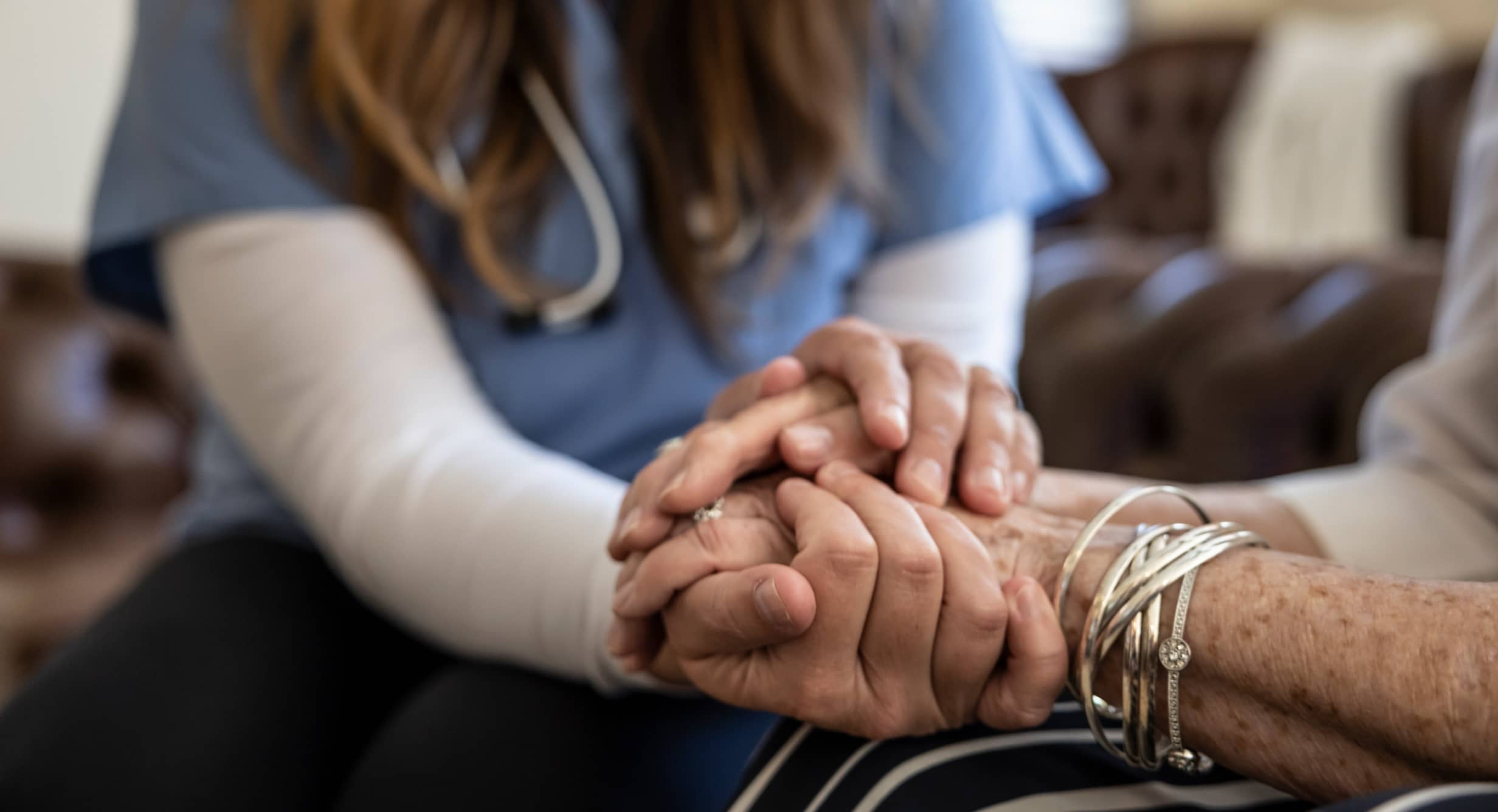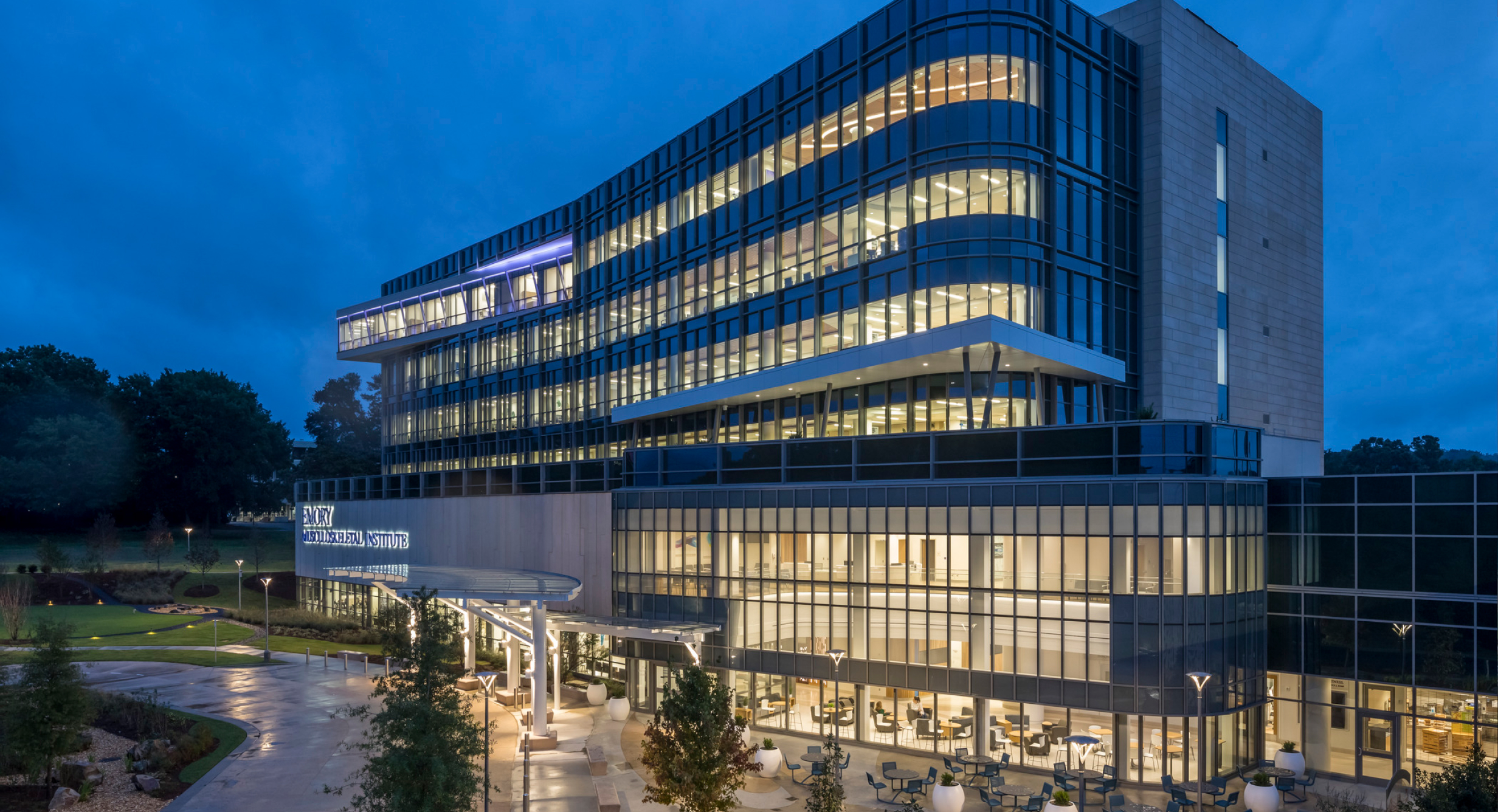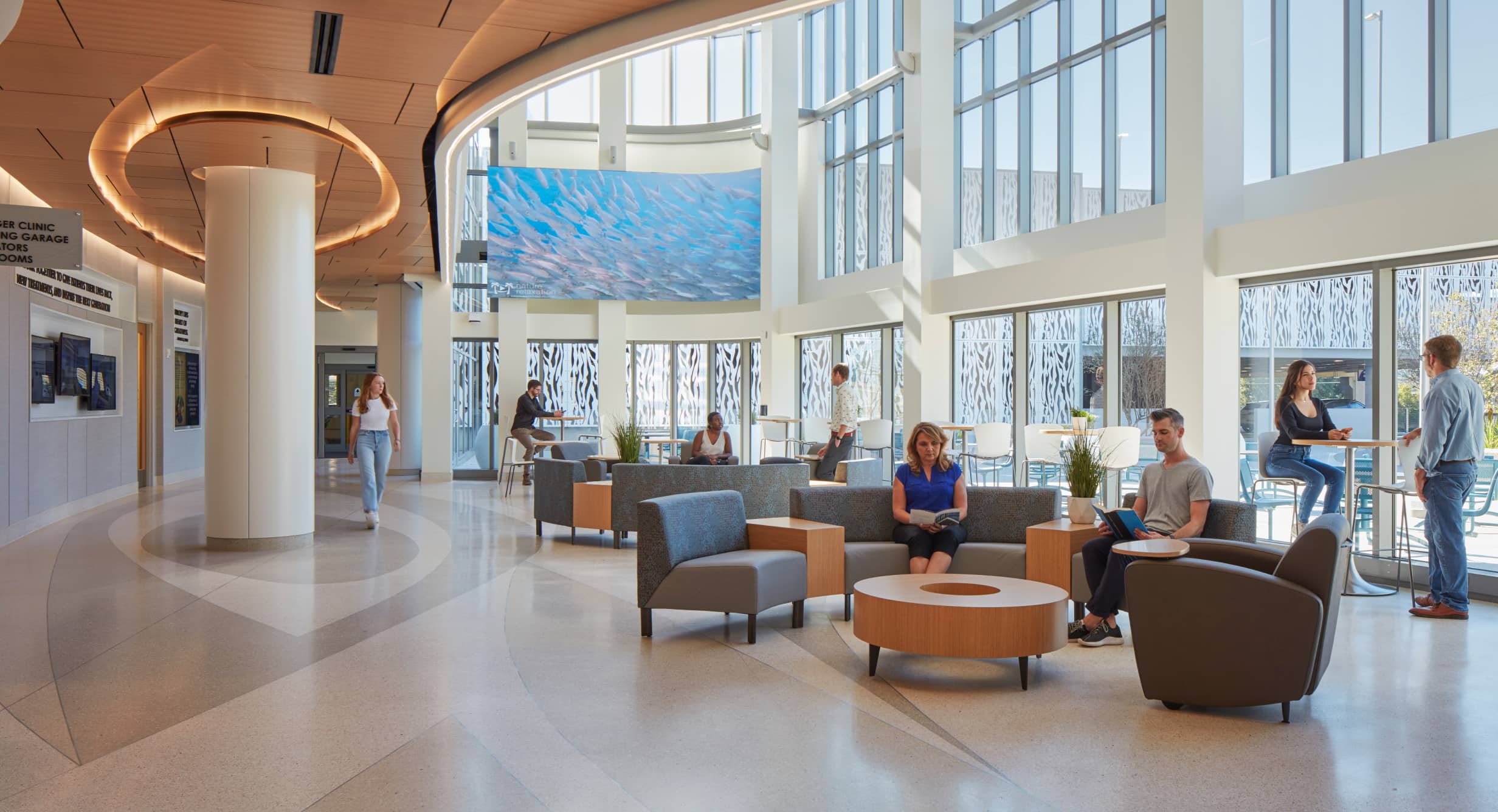
HKS Nurses Provide Unique Perspective to Health Care Design
Michelle Jutt always wanted to be a nurse.
“I’m just a natural caretaker,” Jutt said. “It’s what I was born to do.”
But she never expected her career path to lead to an architecture firm.
Jutt is a Partner and Global Practice Director, Advisory Services at HKS. She is also one of seven nurses employed by the firm.
Why would a global design firm hire seven nurses? Because they provide valuable expertise as advisors, strategists, medical planners and company leaders. May is National Nurses Month and HKS is celebrating the contributions of its nurse employees.
Why would a global design firm hire seven nurses? Because they provide valuable expertise as advisors, strategists, medical planners and company leaders.
In addition to Jutt, other nurses at HKS are Principals Jennie Evans, Global Development Director of the firm’s Communities sector, and Sarah Campbell Holton, Strategic and Operations Healthcare Planner. Senior Managers Laura DiConti and Lisa Sgarlata; and Managers Ana Hutchins and Shawna Langworthy, all with the firm’s Advisory Services group, are also nurses.
The nurses at HKS have worked in specialties ranging from pediatrics to geriatrics, in diverse geographic regions, in inpatient and outpatient environments covering the entire continuum of care. Together, they bring a total of 188 years of nursing experience to the firm.
“There’s so much creativity that comes from a band of nurses working together,” said Evans.

Shared Passion
The seven nurses followed different roads to the nursing and design professions, but they share a passion for caregiving.
Jutt, who is based in Orlando, made her way to HKS in 2017 after a hospital career that included bedside care; human resources; quality, risk and safety management and executive leadership roles.
“I felt like there was something missing for me after almost 20 years,” Jutt said. “I wasn’t feeling the challenge quite like I had in the beginning.”
A friend who worked at HKS told Jutt about a job opening at the firm. Jutt said that as she considered the position, she thought, “You all design hospitals, and I get to be part of that. I get to tell you what works and doesn’t work within a hospital. What a great idea!”

Langworthy is based in the Chicago office. Like Jutt, she has wanted to be a nurse since childhood. “I never thought about anything else, ever” as a profession, Langworthy said.
She worked her way through college, beginning with an associate degree in nursing and continuing her education throughout her career as a nurse and nurse executive, culminating with a doctorate in 2020. Langworthy said that some of her most memorable accomplishments at the hospitals where she worked involved facility design and construction projects. She came to HKS to leverage her experience as a nurse and as a leader to influence health care design.
DiConti, from HKS Los Angeles, started out as a hospital employee at age 19, collecting menus from patients. “My whole career has been focused on health care,” she said. “The hospital is my second home.”
DiConti worked several years as a registered dietitian nutritionist before making the move to nursing at age 30 because she wanted to spend more time with patients. She spent nearly a decade in bedside care, earned her master’s degree in health administration and went on to serve in clinical management, care management and consulting. She was being recruited for a Director of Nursing position when she saw an online posting for a job at an architecture firm.
“Health care design sounded fascinating, and I thought I’d take a risk,” DiConti said. Nine years into her career in health care design, she jumped to HKS, where she’s now worked for eight years.

Evans, who is based in the HKS Dallas office, began her career as a health care assistant in Canada. In that role, she learned to provide basic hands-on patient care, such as taking blood pressure readings.
“I made a list of 10 things that I really wanted to do with my life,” said Evans. “I wanted to travel, I wanted to help people – nursing fit all of those” requirements.
Her job as a traveling nurse ultimately took her to Dallas, where she planned to stay for six months. “That’s 20-some years ago now,” Evans said with a laugh.
Evans’ responsibilities at Children’s Medical Center of Dallas included helping to usher in multiple facility design projects, including working with HKS designers as the hospital’s Clinical Liaison for Design and Construction.
Evans, who has a Master of Business Administration degree in international/global studies, now works at HKS to develop strategic relationships for the firm’s Community sector, helping create healthier and more livable communities worldwide.
Evans said that having multiple nurses on staff demonstrates that “HKS is serious about being the best health care architect.”

“Soup to Nuts”
According to Evans, nurses possess skills that lend themselves well to design projects.
“We’re trained to observe,” she said. “We’re trained to look at the bigger picture. And we have to be efficient.”
Plus, said DiConti, “we’re really good listeners.” As a result, nurses can clearly understand what health care providers want to achieve with a project – and they can help hold the project team to that vision.
“We relate and connect (with clinicians) on a different level,” said Jutt. “We speak their language.”
“Nurses on architecture teams are translators,” said Evans. Nurses not only help translate operational needs into health care spaces, but they also help clinical and design professionals communicate with one another.
Evans described a planning session for an emergency department (ED) design project during which a hospital nurse kept saying that 80 percent of the facility’s patients were older than 80 years old. Evans said she turned to an architect at the meeting and explained, “That means their length of stay in the emergency room is longer than what we would typically plan,” because elderly patients require more time in the ED.
“We understand staffing. We understand operations. We just understand the health care environment, soup to nuts,” Evans said.
Quality Care
When Jutt joined HKS, she was initially concerned that she might miss having a hand in direct patient care. “But what I have found is that I get to make a difference in a much, much larger way,” she said.
Jutt recalled attending the ribbon-cutting ceremony at HKS-designed Emory Musculoskeletal Institute in Atlanta and thinking back on all the site tours and user interviews she’d participated in to help develop the operations plan that guided the facility’s design.
“In that moment, I just cried,” Jutt said. “I thought, ‘This started with a piece of paper and now it’s a building that’s going to take care of patients from all over.’ That’s a really proud moment that will stick with me.”
Langworthy said she hopes her work at HKS creates a legacy of improved satisfaction and safety for hospital patients and staff. “It makes a difference, the design of the projects we’re working on,” she said. “That’s incredibly important. Health care is a risky business. Patients are really sick these days.”
“At the end of the day, we’re taking care of patients,” said Jutt.
“Most Trusted Profession”
While their professional focus has shifted from direct care to design, HKS nurses maintain their nursing credentials.
Jutt, for example, keeps her nurse executive and human resources certificates up to date because “those are important to me personally and I think they continue to give credibility to what we do” at HKS, she said.
Evans maintains her nursing license to help health care professionals recognize that she understands their world. She said that being a nurse gives her work validation.
“Nursing is the most trusted profession in the world,” she said. “Why not have that on your business card?”


